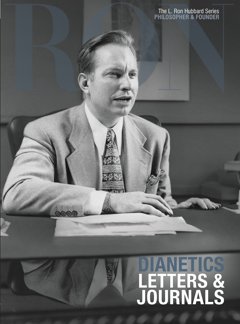The Ultimate Guide To Dianetics
The Ultimate Guide To Dianetics
Blog Article
An Unbiased View of Dianetics
Table of ContentsDianetics Things To Know Before You BuyExcitement About DianeticsWhat Does Dianetics Do?About Dianetics
I couldn't ever not desire to obtain anything that enters your mind for you- if it was otherwise, I wouldn't be resting below with you, doing this. I not only can never have a problem, or otherwise intend to hear something that comes to mind for you, however I'm totally eager to recognize every concept, every idea, every photo or feeling that emerges or shows up for you- don't ever assume otherwise, and if somehow you do, please simply let me know! In some cases, you might have a thought, and image, concept or event pop up that does not appear to answer the inquiry, or associate to it, but however, always do inform me regarding it, and as we continue, the importance will arise for you.This is intrinsic in the basis of processing, and the topic of this discussion: the standard roles of the therapist and the client: The standard role of the therapist is, unlike "common training", not to control, which suggests to enforce and/or hinder, but to rather function from the basis of EMPOWERING THE CLIENT.

The 10-Minute Rule for Dianetics
John Mcmasters shared this basic reality wonderfully well in among his talks on Power processing, where he explains exactly how he was asked what this "unique knack" was that he had for providing such great sessions; he had to think of that for a moment, and detected that it was what he wasn't doing, in addition to what he was doing: he had not been evaluating, judging, computer, or actually, generating any type of ideas, allow alone verbal expressions, after giving the command and while waiting on the computer to finish their solution to their fulfillment; he was, merely and only, being present with the PC, and totally interested.
The role of the counselor, demonstrated; that was his "unique flair". I have actually had my own experience which instructed me this well, really early on in the game. In 1982, having recently finished my training and teaching fellowship on New Period Dianetics, I was running this on a COMPUTER, and there was a factor in the session where (being a little bit wet behind the ears not yet having numerous hours under my belt as an expert auditor) the PC seemed to be "taking too lengthy" to share anything vocally after I provided him a command.
This trick became the most valuable payment that John ever before made to the topic of therapy or auditing (Dianetics). In my modest point of view, it is the best payment that anybody has ever made to these subjectsthe application is entirely non-judgemental, non-evaluative, and empty of any type of tip, guidance or opinion.no preconceived agenda for individuals, or 'degrees' that helpful site they should do
In Idenics, the only source of details concerning a client is the individual customer. In Scientology we prided ourselves on not examining for people. All that actually indicated was that the auditor did not VERBALLY review for the PC in session. The registrars and ethics police officers examined for the PC.
Dianetics Can Be Fun For Anyone

Any individual who had actually ever before seen John audit could not assist but observe an unique top quality in his auditing."The customer's fundamental duty is to be there with the function of relocating the direction of their spiritual objectives, and to freely and totally express and experience whatever shows up for them in answering the inquiries and executing the instructions in the processing.
This is something to procedure as required. But likewise, individuals often have previous experience and/or brainwashing in auditing/processing which, in some methods, and to some levels, actually misleads them into perspectives, concepts and behavior patterns that avoid the complete understanding of these roles, and so they will often tend to hinder the expressing of what comes to mind, as in the examples provided over. * The initial, and perhaps foremost examples of mis-indoctrination resulting in less than totally smooth and efficient sessions, can be discovered in specific elements of the training regimens, or "TR's":"TR's" are commonly an individual's very first, or at the very least early, experience in Scientology, and while I will certainly go on to discuss what I see as the defects in idea and method, nevertheless, tend to be significantly restorative, done as they are given (Hubbard insists that "TR's are not processing, they are educating", yet factually, they are both handling AND training)
Alan Walter made similar observations, and improved these with his "Presence Processes". There is no "failing", and no rejection of the truth of this being processing. The focus, as it ought to be, is on experiencing the various other view it now individual's existence. All the symptoms which get a "fail" in doing "TR-0" are merely the being's efforts to stand up to the various other person's existence, and as opposed to being pestered and pestered with "Flunk", which imposes "failing!" on the being, one just needs to be encouraged to "stick their feet in the water a little much deeper", to significantly restore their ability and willingness to totally share and experience "being right here", or "presence", with others.
The smart Trick of Dianetics That Nobody is Discussing

Report this page